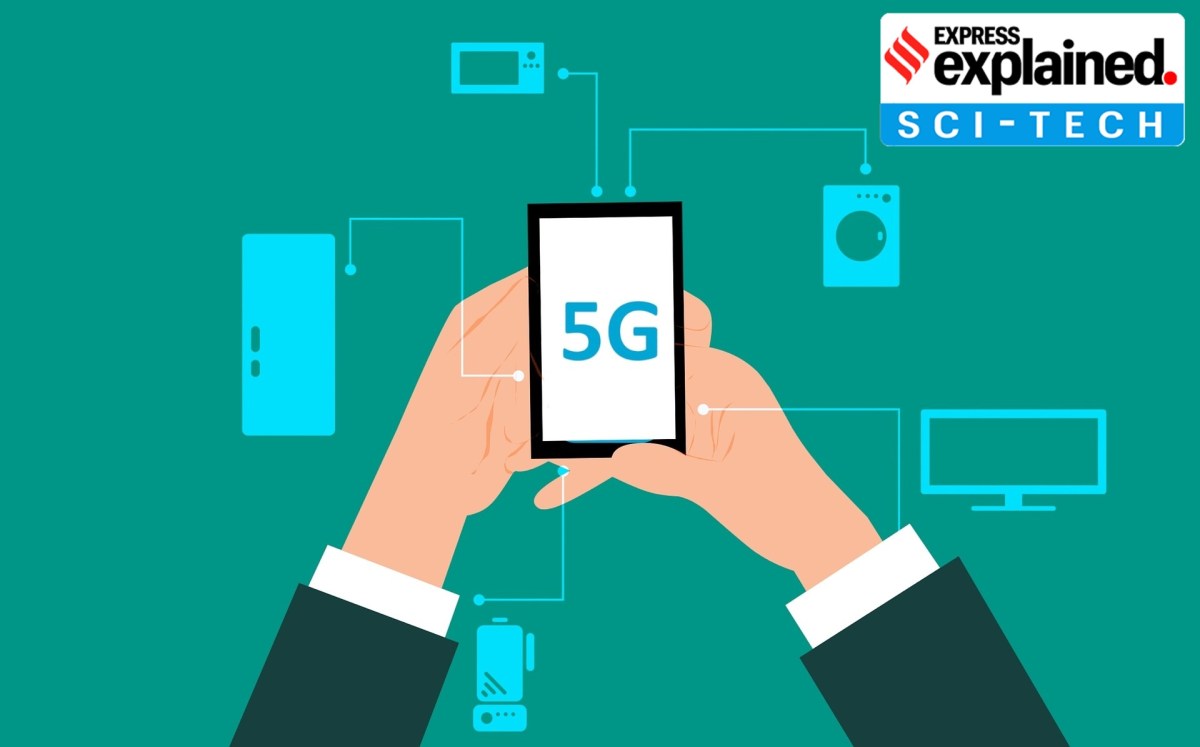The government has invited applications from potential bidders for spectrum auctions planned next month, taking the first step towards rolling out 5G services in the country. The Union Cabinet on Tuesday (June 14) cleared a proposal to auction 72,097.85 MHz of airwaves.
A total 72,097.85 MHz of spectrum with a validity period of 20 years will be put on auction from July 26. The auction will be held for spectrum in the frequencies of 600 MHz, 700 MHz, 800 MHz, 900 MHz, 1,800 MHz, 2,100 MHz, 2,300 MHz, 3,300 MHz and 26 GHz bands.
How will the auction be conducted?
The e-auction will be conducted on a simultaneous multiple rounds ascending model. Bidders will have to submit an earnest money deposit ahead of the auction, on the basis of which each bidder will be allocated eligibility points. During the auction, the company will be able to place its bids using these eligibility points.
How much will the spectrum cost?
At reserve price, the entirety of the spectrum is valued at over Rs 5 lakh crore. Last year, the government had announced a telecom sector relief package, and some facets of the scheme have been included in the terms of this auction. A mandatory requirement to make upfront payment by the successful bidders has been done away with for the first time.
Payments for spectrum can be made in 20 equal annual installments to be paid in advance at the beginning of each year. The bidders would be given an option to surrender the spectrum after 10 years with no future liabilities with respect to balance installments.
The government will also not collect any spectrum usage charge on airwaves auctioned in this round, and the requirement for bank guarantees and financial guarantees has been done away with.
Story continues below this ad
How did the government arrive at the pricing of spectrum?
Last month, the Digital Communications Commission (DCC) had stuck to the base pricing for spectrum suggested by the Telecom Regulatory Authority of India (TRAI). In April, TRAI had recommended cutting spectrum prices for 5G airwaves by 35-40 per cent.
Specifically, the telecom regulatory body suggested that the base price for prime 5G band of 3,300-3,670 MHz be kept at Rs 317 crore per MHz, which is 35 per cent lower than the base price of Rs 492 crore per MHz announced in 2018.
Similarly, for the 700 MHz, the price recommended by TRAI comes out to Rs 3,297 crore, which is almost 40 per cent lower than prices recommended by the regulator in 2018.
Last year in March, the government sold the rights to use airwaves to telecom companies for Rs 77,820.81 crore. At the time, the government had put on offer frequencies in the 700, 800, 900, 1,800, 2,100, 2,300, and 2,500 MHz bands.
Story continues below this ad
However, no bids were received in the 700 MHz and the 2,500 MHz bands due to the high base price of the 700 MHz band.
What are some of the technical highlights of the auction?
After years of keeping the decision in abeyance, the government has finally decided to increase the number of microwave backhaul carriers in the existing frequency bands of 13, 15, 18 and 21 GHz bands.
In the official statement, the government said that it has decided to provisionally allot two carriers of 250 MHz each in the E-Band spectrum, and also decided to double the number of traditional microwave backhaul carriers in the existing frequency bands.
Currently, across these bands, there are 2,090 microwave backhaul carriers available. This has been done because high bandwidth telephony services like 5G require additional backhaul capacity for smooth functioning.
What are private captive networks?
The government has also cleared the path for tech companies to acquire spectrum directly from it to test and build industry 4.0 applications such as machine-to-machine communications, Internet of Things, artificial intelligence, etc. Companies such as Tata Consultancy Services (TCS) have expressed interest earlier in building these non-public 5G networks to develop such solutions.
Story continues below this ad
These networks will not be accessible to the general public. DoT said it will undertake demand studies and thereafter seek TRAI recommendations for direct assignment of spectrum to such enterprises.
